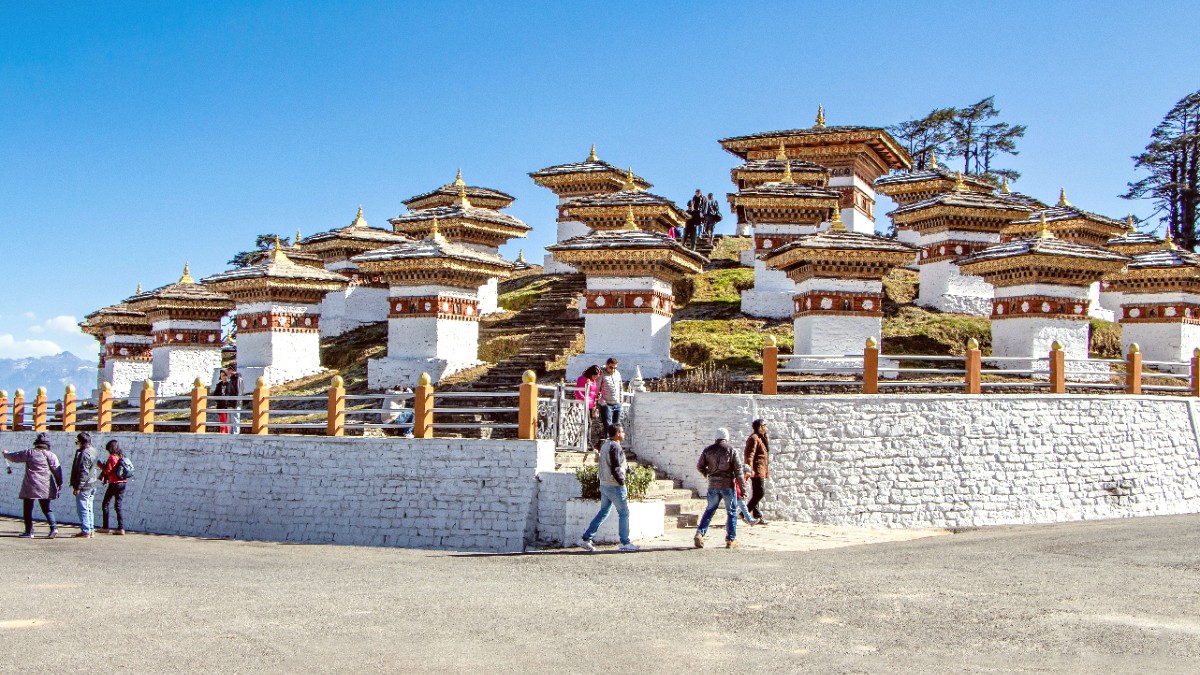
Bhutan
Over 70% of Bhutanese land is forested, with over 50% falling within protected areas, contributing to its carbon-negative status.
Consider offsetting international flight emissions. The SDF (Sustainable Development Fee) indirectly supports Bhutan's carbon-negative status.
Many establishments and operators in Bhutan prioritize sustainability. Selecting them supports a greener journey.
Look for properties that implement sustainable practices, contributing to environmental protection during your stay.
Choosing tour operators with strong sustainability practices supports responsible tourism in Bhutan.
Travelers play a part in supporting Bhutan's environmental goals through conscious actions.
Bhutan is unique in its carbon-negative status, actively absorbing more carbon dioxide than it produces.
Bhutan's "High Value, Low Impact" tourism policy protects its unique environment.
The policy limits tourist numbers, reducing environmental pressure.
Shop Sustainable GearTourism revenue actively funds conservation projects across the country.
Find Eco-AccommodationPack a reusable water bottle and shopping bag.
Bhutan's unique culture thrives. Your respectful interaction preserves it.
The "High Value, Low Impact" tourism policy safeguards Bhutan's unique culture and pristine environment from mass tourism's potential negative impacts.
Maintain discretion and mindfulness when photographing, notably during sensitive moments or within private spaces.
Avoid intrusive photography during religious ceremonies, rituals, or private moments.
Bhutanese people, while friendly, hold a right to privacy regarding their image.
A polite request before taking a photo shows respect for their personal space.
Ensure your tour operator is a license from the Tourism Council of Bhutan (TCB) and maintains a strong reputation for ethical practices. This supports responsible tourism development.
Responsible travel in Bhutan includes ensuring your visit contributes positively to local communities.
Support local families by staying in homestays, when arranged by your tour operator.
Participate in activities directly benefiting local communities and their livelihoods.
Visiting artisan villages directly supports craftspeople and cultural preservation.
Bhutan's "High Value, Low Impact" tourism policy deters exploitation.
Verify your tour operator is licensed by the TCB and has a good ethical reputation.
Avoid giving money or gifts directly to children on the streets, as it can inadvertently encourage begging.